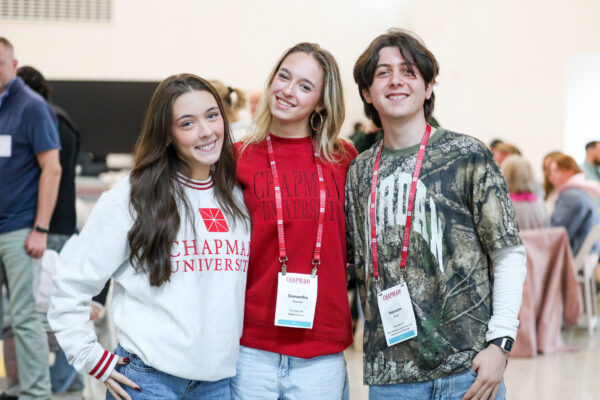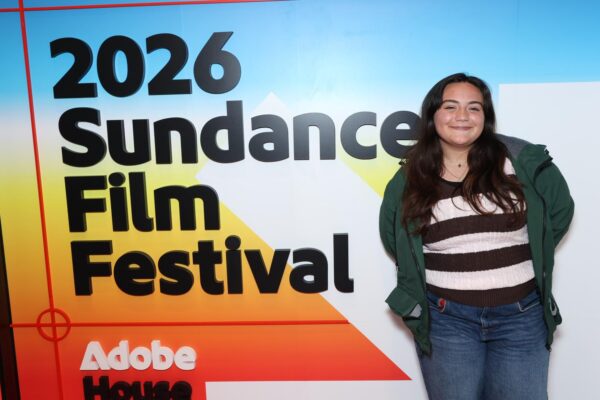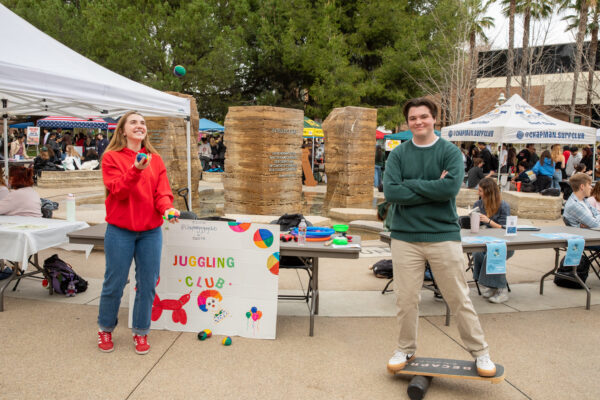Students at Chapman University had the opportunity to learn first-hand from legendary filmmaker Spike Lee during a recent master class at Dodge College of Film and Media Arts. Lee is an Academy Award-winning American filmmaker, producer, writer and actor celebrated for his groundbreaking films such as “Do the Right Thing,” “Malcolm X” and “BlacKkKlansman,” which earned him the Oscar for Best Adapted Screenplay in 2019.
Academy Award Winner Spike Lee Visits Dodge College
Following a screening of his latest film, “Highest 2 Lowest,” Lee joined Scott Feinberg, executive editor of “The Hollywood Reporter” and Chapman trustee professor, on stage in the Folino Theater for a conversation that delved into Lee’s body of work, his time in film school, and his collaborations with actor Denzel Washington and others.
Who is Spike Lee?
Lee shared anecdotes from across his career, such as how his grandmother helped fund not only his college education but also his first feature film, “She’s Gotta Have It,” with money she’d saved from social security checks for 50 years, as well as the influence of 1971’s “The French Connection” on his most recent film. Amongst many moments of laughter, there was also poignant reflection, such as when he discussed his 1997 documentary about the 1963 Birmingham church bombing, “4 Little Girls.”
When asked what made Washington, who stars in “Highest 2 Lowest,” a movie star, he answered, “In baseball, you know what they call the ‘five-tool player’? Denzel is the movie equivalent. He has the tools, and the greats — I don’t care if you’re talking about athletes or whatever it is — they have that stuff that just puts that person over the top.”
Lessons on Filmmaking and Work Ethic
But it takes more than talent to become successful. Lee, who is a tenured professor at New York University’s Tisch School of the Arts, said his most common subject with his students is work ethic.
“You got to put the … work in,” he said. “You think you can fake the funk, you know, scam people. The people in the higher positions, they can see the fake [stuff] a mile away.”
But he added that when you are doing what you love, it’s not work: “When you find the thing that you don’t mind getting up at four o’clock in the morning to go to work, when you don’t even need an alarm…. If I get up at five, I know I gotta wake up, but I don’t need an alarm clock, because I’m blessed with doing what I love.”
Inspiration for the Next Generation of Filmmakers
After his conversation with Feinberg, Lee also answered questions posed by students in the audience. A sample:
What was your “I made it” moment?
“When I got season tickets to my beloved New York Knicks. They were not on the floor! I moved down every year. I did not start with my feet on the wood of the most famous arena in the world, Madison Square Garden.”
Was there ever a time when you were down about your career and considered walking away from it, and if so, how did you push through it?
“You know, that’s a great question. There were times where I was really down, but I never … allowed myself to quit. Anybody who’s made it and says that the very minute they decided what they wanted to do, there were no cracks in the sidewalk or this or that, they’re lying. Just straight up lying. Anybody, whoever wants to do this, there’s gonna be some rough spots. It’s okay to mope for one day and feel sorry for yourself, but after that, pick your[self] up and go.”
Do you believe artists have a responsibility to reflect or reshape the times that they live in?
“I don’t believe that, because there’s different type of artists. We have artists who just wanted to entertain you. I’m okay with that.”
At the conclusion of the discussion, Lee posed for photos with students.
To learn more about master classes with professional filmmakers, actors, musicians and writers, visit Dodge College of Film and Media Arts




